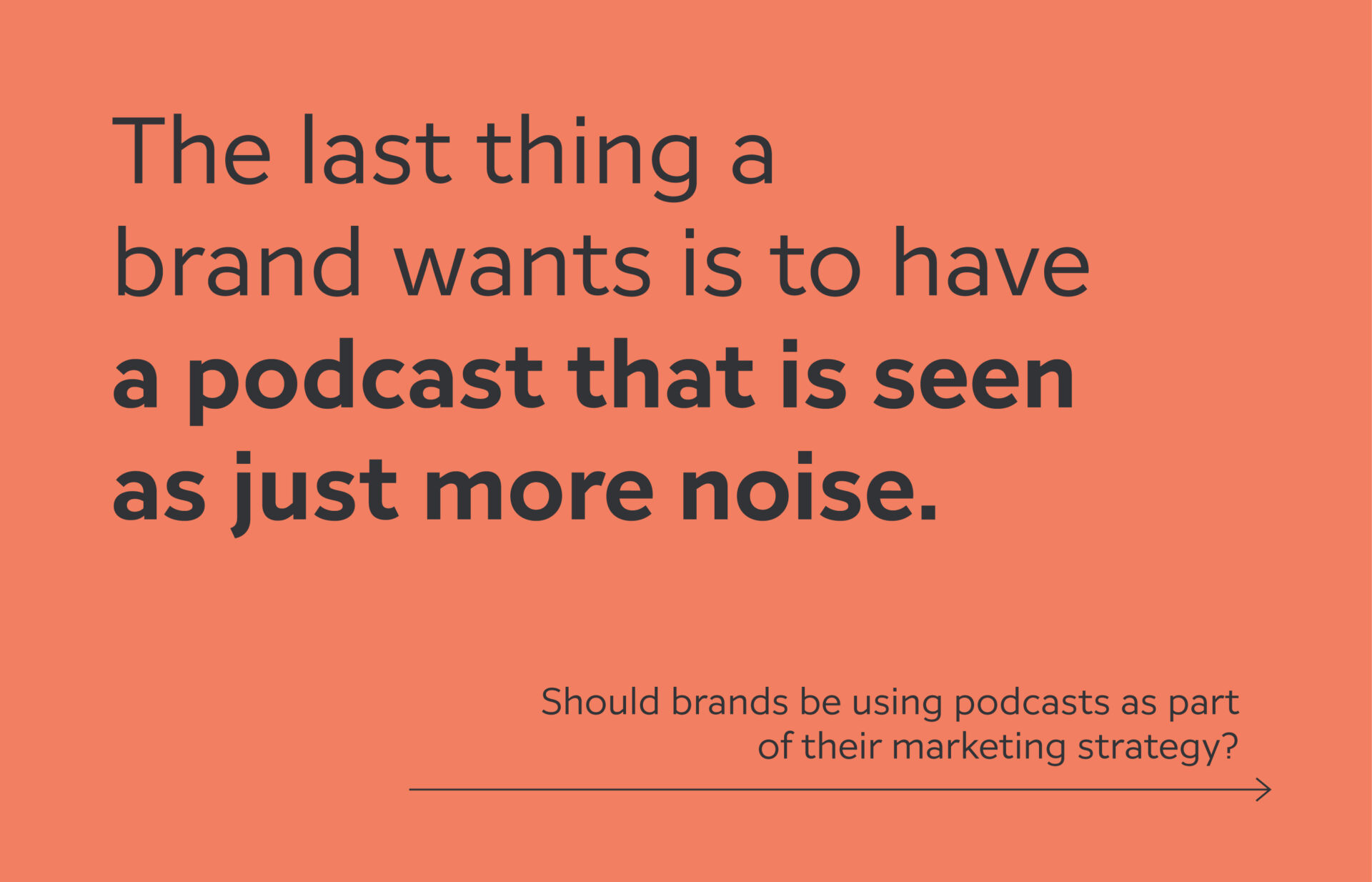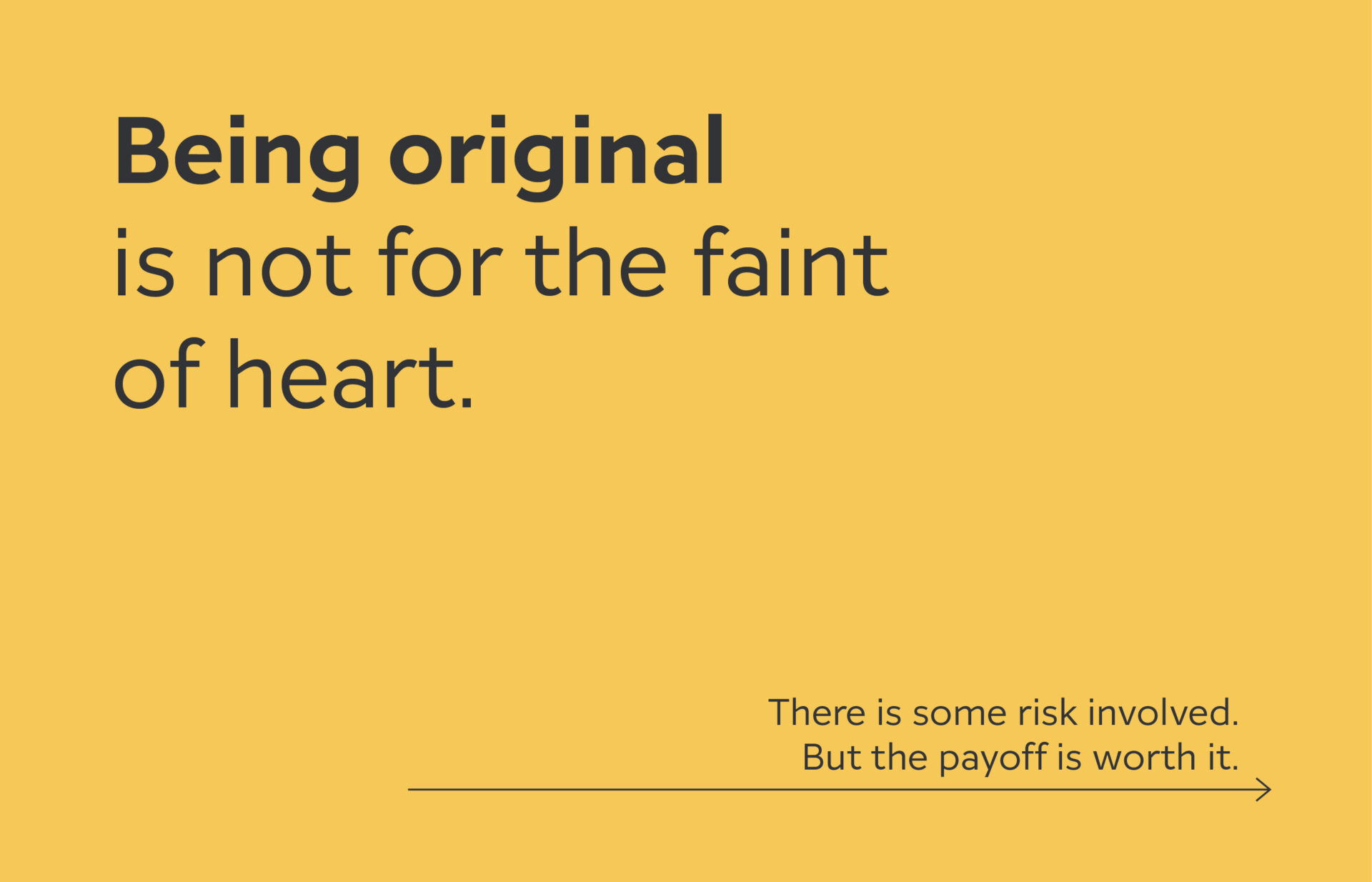Podcasts – Seems everyone is doing it, should brands?
Podcasts seem to be all the rage these days. There is no limit to what you can find a podcast on. So it’s only natural that brands would be looking to join in on the fun, but should brands be using podcasts as part of their marketing strategy?
I’m sure we all have our favourite podcasts that we queue up for when we’re on the road, exercising, making dinner, or enjoying some downtime. The choices are pretty endless and we can find one on just about anything that interests us. And because we’re picking the specific podcast or topic, chances are we are actively listening through most of it.
With so many actively engaged ears to tap into, brands and organizations are beginning to enter the ring and start a podcast of their own. Positioned as the actual brand, or shows hosted by various c-suite individuals, brands are using podcasts to:
- Give a glimpse into their values or culture;
- Position themselves as an expert in the industry;
- Or demonstrate the value of their product or service
But here’s the thing – with so many podcasts out there, most topics have gotten past the saturation point. There are hundreds of podcasts that are all pretty much saying the same thing, acting as endless echo chambers. Worse still, with nothing different to say, they become time wasters. Listeners skip ahead, or flip between episodes to find the bits worth listening to.
The last thing a brand wants is to have a podcast that is seen as just more noise.

Creating a value-add podcast
When considering if your organization or leadership team should join the podcast making wave, here are a few things to think about before hitting record:
What are we saying that hasn’t already been put out there?
If what you are sharing is a mainstream idea or trend, what else can you add to the conversations?
What unique perspective can we share?
What is it about your experience that not many others can speak to?
How do we keep each episode focused and meaningful the whole way through?
Reading a script can seem unnatural, but rambling about what you had for breakfast isn’t a good use of your listeners’ time either. Have speaking points or direct questions set and ready to go.
How do we make sure that the podcast’s content is geared towards our brand’s equity in a natural conversation?
Do you have clear marketing goals – build brand awareness, support brand values, lift sales, generate lead, build relationship building, or present case studies of your brand to potential customers
Plan, Plan, Plan!
Like any other media channel, a good content plan is key and you want to have a solid content schedule in place before you launch your first episode. Depending on the frequency of your podcasts, a good rule of thumb is to have at least six to twelve months worth of episodes outlined before you get started. And putting together an outline will help you assess if you have enough to talk about and determine if a podcast makes sense.
If you find you don’t have a ton of topics, don’t be afraid to switch gears and create a limited series. Ten really well produced episodes is going to be way more impactful than 24 fly by the seat of your pants sessions!
Another idea to think about if you don’t have enough to support a podcast is to use that content and create short videos that you can post on social media or your website. You can still communicate to your audience the core ideas you wish to share in a super clear and concise approach.
Or consider being a guest on another podcast that aligns with your values, perspective or industry. (You might want to consider disclosing if you paid to be a guest as that makes it essentially a paid promotional podcast.)
Rolling Stone magazine also recently came out with some other tips for companies considering to start a podcast. They are all really great to consider as well as you ponder a podcast.
Hope you find this helpful if you’ve been considering a branded podcast. Feel free to reach out if you are looking for a second opinion on whether it makes sense for your organization or not.


June 3, 2025
The Quiet Power of Good Signage
May 14, 2025
Fighting sameness
October 1, 2024





